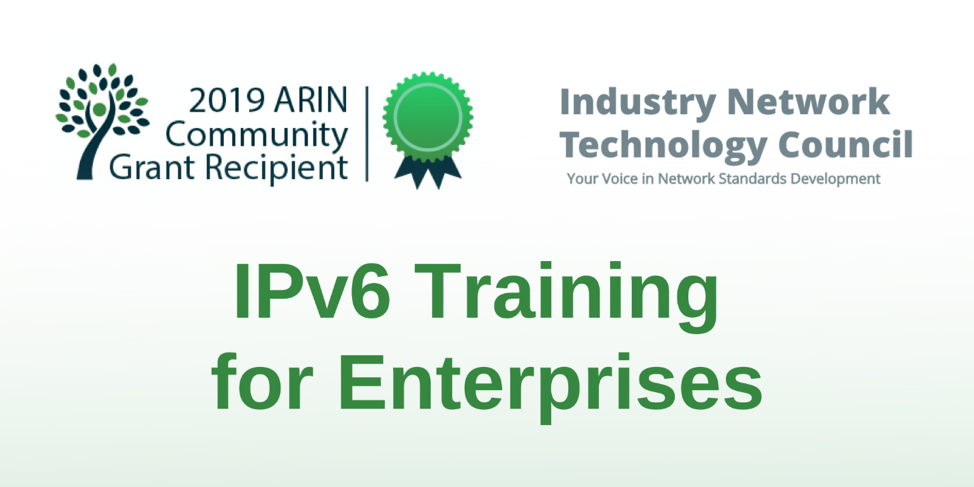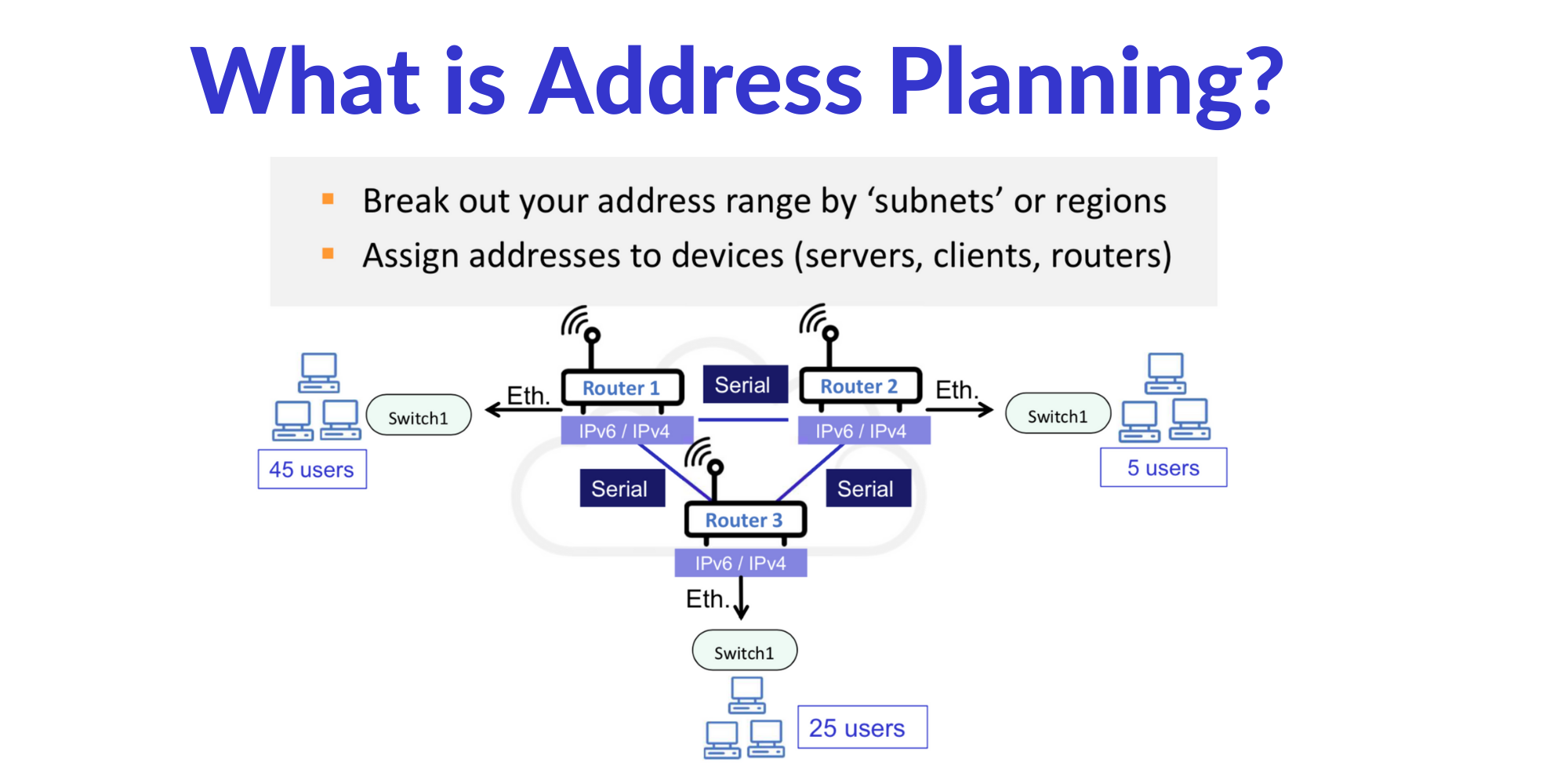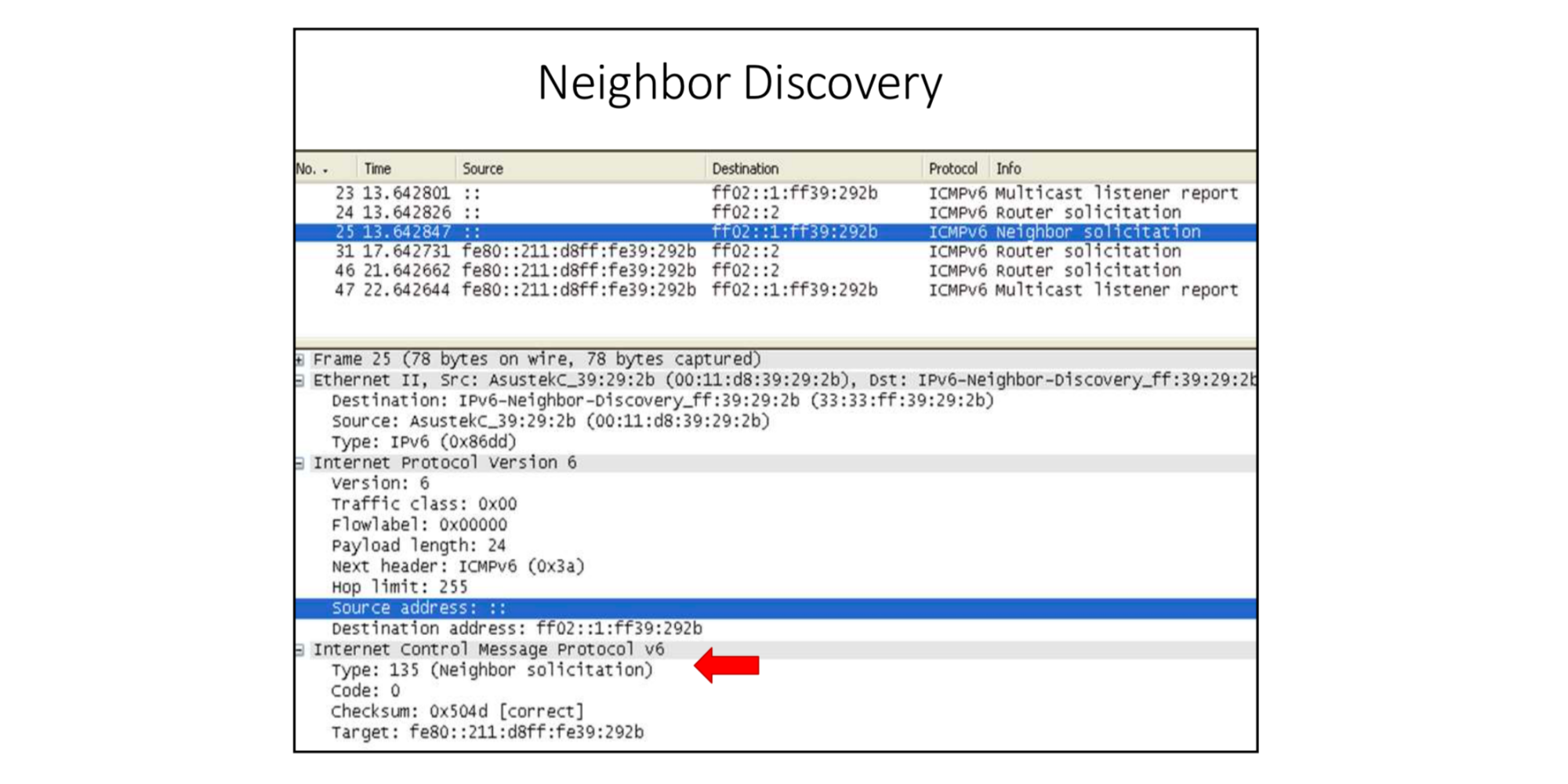
IPv6 Training for Enterprises
2019 ARIN Community Grant Program Recipient Report
Overview
The IPv6 Training for Enterprises Project provided IPv6 training to technicians from large enterprises (privately managed networks). IPv6 deployment at such networks has lagged, in part due to lack of training. Many feel that unless this issue is addressed, the Internet as a whole will stall at an IPv6 adoption rate of about 60%.
We have done a survey of large enterprises and have found that security, application conversion, and training are three of the biggest challenges enterprises reported as barriers to IPv6 adoption. The project for 2019 focused on the training needs.
Even though enterprise technicians want to get trained on IPv6, management does not want to pay for such training since they do not see a business need for adoption. This creates an unfortunate cycle where misinformation about the complexity of the IPv6 protocol and unreasonable fears about security and manageability combine with the perceived lack of urgent business needs to prevent adoption of IPv6. Our project sought to provide technical training through a series of webinars on many of the core features of IPv6.

Project Results
The attendance at the webinars was much more successful than we had expected in terms of the number and type of enterprise organization reached. The introductory classes had more attendees than the advanced classes, as might be expected. A number of companies told others of the webinars and to download the recordings.
We gave a number of webinars:
- IPv6 Fundamentals
- Neighbor Discovery
- IPv6 Transition Mechanisms
- DHCPv6
- IPv6 Addressing and Address Planning
- Introduction to IPv6 Security
The first set of webinars, “Introduction to IPv6 and Neighbor Discovery” had the highest number of attendees. The total number was 650 (including attendees from ARIN, APNIC, RIPE NCC, and AFRINIC). The other webinars had a similar regional distribution.
Many brick-and-mortar enterprises have delayed transition to IPv6, so it was quite helpful that the United States Office of Management and Budget (OMB) announced a direction of IPv6-only for the US federal government. I explain in greater detail its impact on enterprises in this article in Enterprise Executive Magazine.
The webinars were well-received. As an example, one senior technician at a US military organization expressed appreciation for our training and asked for a link to the recording to pass along to staff and peers. Another senior technician at a large US federal government agency said, “Thank you for the excellent introduction to IPv6. As someone who had little background aside from cursory overview, I found the first half of the class very informative. The reference of both wireshark captures, as well as real life example of ipconfig output helps to match theory to practice. I also enjoyed your candid thought concerning some of the common controversies such as privacy and security, both of which are very important to both public and private organizations’ implementation. I look forward to attending the next webinar that may cover more past and future. As always, anyone can find a book and attend a training to learn the technical aspect, but it’s real-world considerations and examples that help put these in perspective.”
Benefits to the Internet industry in the ARIN region
Our focus has been on Internet standards activities and new protocols which impact large, complex, privately-managed networks. One of the persistent issues in Internet standards is the lack of involvement by the large brick-and-mortar industry. Such industries are the backbone of the economic system of all countries yet they are not involved in Internet standards activities. The lack of adoption of IPv6 at such enterprises highlights this problem clearly. Many enterprises will also resist some of the new security protocols.
This is a tricky area as enterprises are not specialists in Internet standards and also do not clearly understand how and why they should be involved. That is, it takes a lot of work and their management does not see that it adds to their bottom line (in the short term) to have people be involved. We are working to educate senior enterprise technicians who will have influence in their organization on the new protocols. It is a long-term effort but one which will, hopefully, succeed.

What’s next?
We are seeing excitement and engagement from other regions around the world, which has led to further collaboration to continue what we have started here with the generous help of ARIN.
We have received a grant for 2020 from ISIF (APNIC) to work with enterprises in Asia Pacific on IPv6 deployment. This will add a global dimension to our work. Many organizations in the ARIN region have subsidiaries and affiliates in the Asia Pacific region. We hope to help move enterprises towards IPv6 deployment globally.
We are also proud to announce that we have received a continuation grant from ARIN for 2020 to explore the complex areas of security and application conversion which affect IPv6 deployment. We will also provide more advanced troubleshooting classes for IPv6.
If you would like to view the webinars we have already given, a listing may be found on the INTC website. Presentation slides and recordings may be freely downloaded. We hope to continue to build on the connections made with enterprises to move them towards adoption of IPv6 on their networks.
Any views, positions, statements, or opinions of a guest blog post are those of the author alone and do not represent those of ARIN. ARIN does not guarantee the accuracy, completeness, or validity of any claims or statements, nor shall ARIN be liable for any representations, omissions, or errors contained in a guest blog post.
Recent blogs categorized under: Grant Program
GET THE LATEST!
Sign up to receive the latest news about ARIN and the most pressing issues facing the Internet community.
SIGN ME UP →Blog Categories
Caribbean • IPv6 • ARIN Bits • Tips • Updates • Elections • Outreach • Security • RPKI • Public Policy • Guest Post • Grant Program • Fellowship Program • Data Accuracy • Business Case for IPv6 • Internet Governance • Training • IPv4 • Customer Feedback • IRR



